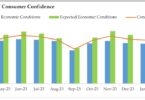F.P. Report
Washington, DC: An International Monetary Fund (IMF) team, led by Ms. Ran Bi, held virtual discussions with the Qatari authorities to conduct the 2022 Article IV consultation from February 13 to March 1, 2022. At the end of the visit, Ms. Bi issued the following statement:
“The Qatari authorities’ swift and decisive response to the COVID-19 crisis has dampened its health and economic impact and paved the way for a speedy recovery. Proactive containment measures, massive testing, strong healthcare, and fast vaccination rollout have helped to minimize the health effect of the pandemic and contain the disruptions to economic activities. In addition, the comprehensive economic support package has provided much needed relief to the most affected households and firms and ensured sufficient liquidity in the banking system.
“Economic recovery is gaining strength on the back of rebounding domestic demand, higher hydrocarbon prices, and the preparation for the 2022 FIFA World Cup. Real GDP growth is thus expected to accelerate to 3.2 percent in 2022. The North Field LNG expansion project will support growth prospects and further strengthen fiscal and external positions over the medium-term. Downside risks to the outlook stem from potential new virus strains, geopolitical tensions and conflicts, tighter and more volatile global financial conditions and energy market volatility. In the long run, while Qatar’s focus on LNG can help to ease the energy transition process, there is the ultimate risk that the global shift to renewals could reduce demand for hydrocarbon.
“To secure the recovery and foster stronger and more diversified growth, policy priorities include to carefully manage the exit from remaining financial sector support to safeguard banking sector strength, embark on a growth-friendly medium-term fiscal consolidation, and further advance structural reforms to achieve the goals in Qatar National Vision 2030.
“The banking sector remains well-capitalized and liquid, with non-performing loans (NPLs) at relatively low levels. To balance the need to facilitate the recovery and to ensure banking sector strength, a carefully calibrated exit from remaining support measures is crucial. In this context, the planned gradual reduction in the allocation for the zero-interest repo facility is welcome, while the strength of the economic recovery would allow the exit from the blanket loan moratorium beyond March—we recommend replacing it with time-bound measures targeting distressed but viable borrowers. Unviable firms should be resolved through an enhanced insolvency framework. Diligent banking supervision should continue, including for banks to promptly recognize and address NPLs and comply with provisioning and capital requirements. Banks’ large and increasing exposure to foreign liabilities poses potential risks as global financial conditions tighten, while the existing prudential framework and efforts to lengthen the maturity and diversify the sources of foreign funding are mitigating factors. Strong state support provides the last line of defense, but sovereign contingent liabilities could increase. Prudential measures and reforms to promote domestic stable funding could help to alleviate the risks. Prudent public finance management and a reduced public sector’s footprint in the domestic banking sector could avoid crowding out private credit.
“Amid rising hydrocarbon prices and a favorable fiscal outlook, the authorities’ commitment to medium-term fiscal consolidation is particularly welcome. A balanced and growth-friendly consolidation strategy could help to achieve the dual objectives of intergenerational equity and diversification. The strategy would call for diversifying revenues and accelerating the implementation of the value-added tax (VAT), enhancing current spending efficiency, and reorienting spending to promote productivity, economic diversification and a greener economy. The implementation of the strategy could be underpinned by a well-designed medium-term fiscal framework (MTFF) and enhanced fiscal transparency and governance.
“Qatar has made commendable progress in advancing structural reforms during the pandemic. It became the first GCC country to abolish Kafala with a mandatory minimum wage and allowances for food and housing. Various reforms have been introduced to boost foreign and private investment and improve productivity and competitiveness. The recently launched National Environment and Climate Change Strategy envisages a 25 percent reduction of trend greenhouse gas emissions by 2030. Strong reform momentum should continue to improve productivity and inclusiveness, further enhance the business environment and attract private investment, and embrace new global trends, such as digitalization and green growth, for more diversified and stronger growth in the long term, as well as to address climate challenges.
“The IMF mission team expresses its appreciation to the authorities for the candid and productive discussions during this virtual visit. The team met with Minister of Finance H.E. Ali bin Ahmed Al Kuwari, Governor of the Qatar Central Bank H.E. Sheikh Bandar bin Mohammed bin Saoud Al-Thani, other senior officials, and representatives of the private sector. We look forward to continuing our dialogue and close collaboration.”






